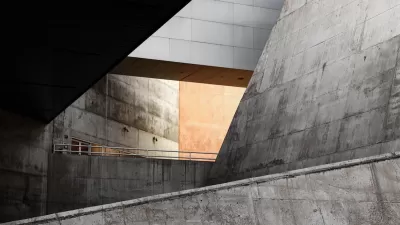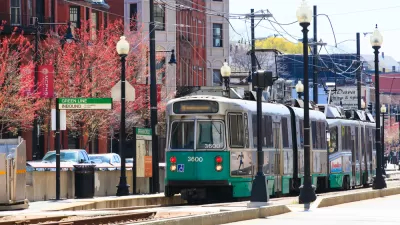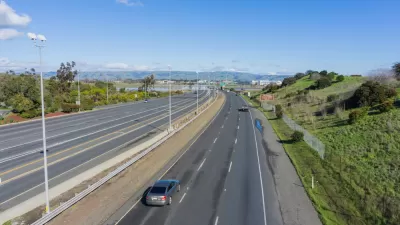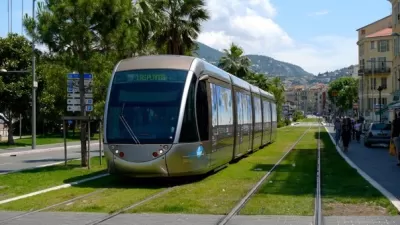In the early days, trolleys and trains carried 400,000 passengers a day over the Brooklyn Bridge. With continued growth in pedestrian traffic, a former transit commissioner says a rail renaissance might not be so far-fetched.
"'People took trains across the bridge,' says former Transportation Commissioner Sam Schwartz. 'At one point, there were four tracks across the bridge. More than 400,000 people a day in those early decades used the Brooklyn Bridge every single day.'"
"'The Brooklyn Bridge walkway is getting so popular that we may have to begin to think, How do we accommodate all the pedestrians? Should we put the roads on a diet? Should we introduce some kind of transit service? Probably not a bus service, but maybe it will be a light rail service going across the bridge,' says Schwartz. 'So in the next 75 years ‘til its bicentennial, I think the bridge probably will go back to a more transit-oriented bridge.'"
FULL STORY: Brooklyn Bridge Could Become More Transit-Oriented In Future

What ‘The Brutalist’ Teaches Us About Modern Cities
How architecture and urban landscapes reflect the trauma and dysfunction of the post-war experience.

‘Complete Streets’ Webpage Deleted in Federal Purge
Basic resources and information on building bike lanes and sidewalks, formerly housed on the government’s Complete Streets website, are now gone.

The VW Bus is Back — Now as an Electric Minivan
Volkswagen’s ID. Buzz reimagines its iconic Bus as a fully electric minivan, blending retro design with modern technology, a 231-mile range, and practical versatility to offer a stylish yet functional EV for the future.

Healing Through Parks: Altadena’s Path to Recovery After the Eaton Fire
In the wake of the Eaton Fire, Altadena is uniting to restore Loma Alta Park, creating a renewed space for recreation, community gathering, and resilience.

San Diego to Rescind Multi-Unit ADU Rule
The city wants to close a loophole that allowed developers to build apartment buildings on single-family lots as ADUs.

Electric Vehicles for All? Study Finds Disparities in Access and Incentives
A new UCLA study finds that while California has made progress in electric vehicle adoption, disadvantaged communities remain underserved in EV incentives, ownership, and charging access, requiring targeted policy changes to advance equity.
Urban Design for Planners 1: Software Tools
This six-course series explores essential urban design concepts using open source software and equips planners with the tools they need to participate fully in the urban design process.
Planning for Universal Design
Learn the tools for implementing Universal Design in planning regulations.
City of Albany
UCLA Lewis Center for Regional Policy Studies
Mpact (formerly Rail~Volution)
Chaddick Institute at DePaul University
City of Piedmont, CA
Great Falls Development Authority, Inc.
HUDs Office of Policy Development and Research





























